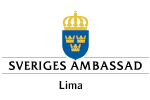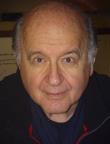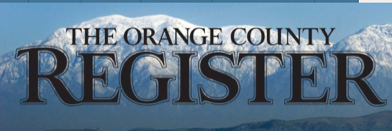 After all, the Arab Spring began when a poor Tunisian entrepreneur, Mohamed Bouazizi, set himself on fire in December 2010 to protest the merciless expropriation of his business. He committed suicide – as his brother Salem told me in an interview recorded for American public television – for “the right of the poor to buy and sell.”
After all, the Arab Spring began when a poor Tunisian entrepreneur, Mohamed Bouazizi, set himself on fire in December 2010 to protest the merciless expropriation of his business. He committed suicide – as his brother Salem told me in an interview recorded for American public television – for “the right of the poor to buy and sell.”




 End ‘anoikis’ in Middle East to win the war on terror 6 Wednesday, December 30, 2015Hernando de SotoHernando de Soto wonders how long it will take the West to remember that democratic capitalism requires strong property rights to set clear boundaries beyond which the state may not go? Without them, the situation in the Middle East will remain volatile for years to come
End ‘anoikis’ in Middle East to win the war on terror 6 Wednesday, December 30, 2015Hernando de SotoHernando de Soto wonders how long it will take the West to remember that democratic capitalism requires strong property rights to set clear boundaries beyond which the state may not go? Without them, the situation in the Middle East will remain volatile for years to come People's homes are most often their biggest asset -- something that can be borrowed against to start a business or secure a safe retirement. In the developing world, property titles take on even more meaning. Peruvian economist Hernando de Soto, for example, has identified trillions of dollars of "dead capital" in the developing world: people living in the world's poorest slums own their homes, but without formal titles they can't easily sell, appraise, insure or borrow against those assets.
People's homes are most often their biggest asset -- something that can be borrowed against to start a business or secure a safe retirement. In the developing world, property titles take on even more meaning. Peruvian economist Hernando de Soto, for example, has identified trillions of dollars of "dead capital" in the developing world: people living in the world's poorest slums own their homes, but without formal titles they can't easily sell, appraise, insure or borrow against those assets. Hernando de Soto and his 1989 book, “The Other Path: The Invisible Revolution in the Third World.” It has sparked numerous free-market reforms in his native country and throughout Latin America.
Hernando de Soto and his 1989 book, “The Other Path: The Invisible Revolution in the Third World.” It has sparked numerous free-market reforms in his native country and throughout Latin America. FIGAROVOX/TRIBUNE- La paix dans les pays arabes passe par le développement de la libre entreprise et d'une sécurité juridique, plaide l'économiste péruvien Hernando de Soto.
FIGAROVOX/TRIBUNE- La paix dans les pays arabes passe par le développement de la libre entreprise et d'une sécurité juridique, plaide l'économiste péruvien Hernando de Soto. It has been 14 years since US president George W. Bush declared a “global war on terror”. Today, after spending $1.6 trillion on that war and killing 101 terrorist chieftains, from Osama bin Laden to “Jihadi John”, the West remains just as vulnerable, if not more so, to extremists who can recruit fighters and strike any Western capital virtually at will. Now that another president—François Hollande of France—has also declared war on terror (as have other European leaders), are the prospects for victory really any better? I have my doubts.
It has been 14 years since US president George W. Bush declared a “global war on terror”. Today, after spending $1.6 trillion on that war and killing 101 terrorist chieftains, from Osama bin Laden to “Jihadi John”, the West remains just as vulnerable, if not more so, to extremists who can recruit fighters and strike any Western capital virtually at will. Now that another president—François Hollande of France—has also declared war on terror (as have other European leaders), are the prospects for victory really any better? I have my doubts. ¿Qué ha causado entonces la informalidad en la que vivimos? Hernando de Soto, presidente del Instituto Libertad y Democracia (ILD) apunta a que son precisamente estas regulaciones y deficiencias en la titulación de la propiedad. El problema no sería el supuesto capitalismo sino la falta de este. ¿Cómo así?
¿Qué ha causado entonces la informalidad en la que vivimos? Hernando de Soto, presidente del Instituto Libertad y Democracia (ILD) apunta a que son precisamente estas regulaciones y deficiencias en la titulación de la propiedad. El problema no sería el supuesto capitalismo sino la falta de este. ¿Cómo así? Go to Google Maps and take a look at a township in South Africa, a slum in India or a favela in Brazil. The website will show you a few roads, surrounded by plenty of blank space. Now switch to satellite view, and you'll discover teeming cityscapes, bustling with life in unmapped houses and businesses, along hundreds of uncharted streets. Or check out Nairobi, Kenya, where you will see many roads, but the streets have no names.
Go to Google Maps and take a look at a township in South Africa, a slum in India or a favela in Brazil. The website will show you a few roads, surrounded by plenty of blank space. Now switch to satellite view, and you'll discover teeming cityscapes, bustling with life in unmapped houses and businesses, along hundreds of uncharted streets. Or check out Nairobi, Kenya, where you will see many roads, but the streets have no names. Between 1990 and 2012, Peru’s middle class grew four times faster than the rest of Latin America’s. Why? Because it is an emancipation movement that has been metamorphosing for half a century: From low-income classes to migrants, then to “informals,” the sector from which the new middle class has emerged as the engine of Peru’s impressive economic growth.
Between 1990 and 2012, Peru’s middle class grew four times faster than the rest of Latin America’s. Why? Because it is an emancipation movement that has been metamorphosing for half a century: From low-income classes to migrants, then to “informals,” the sector from which the new middle class has emerged as the engine of Peru’s impressive economic growth. Spanish-speaking area: While only a few Spaniards are among the most influential thought leaders in the Spanish-speaking area, South Americans, by contrast, occupy 15 of the top 20 places in this language area.
Spanish-speaking area: While only a few Spaniards are among the most influential thought leaders in the Spanish-speaking area, South Americans, by contrast, occupy 15 of the top 20 places in this language area.